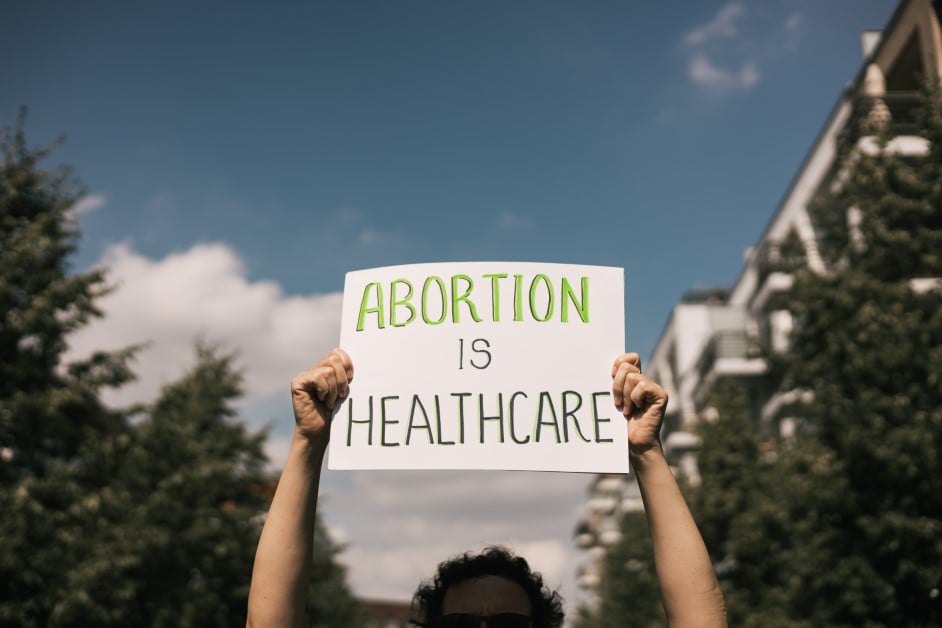
Last week, the Equal Employment Opportunity Commission (“EEOC”) finalized its regulations in line with the Pregnant Workers Fairness Act (“PWFA”). The Pregnant Workers Fairness Act, a law in the United States, aims to eradicate discrimination and guarantee workplace adjustments for employees with known limitations due to pregnancy, childbirth, or related medical conditions. It is applicable to employers with fifteen or more employees.
The EEOC’s regulations were much debated on whether “abortion” would be afforded protection under the Act’s definition of “pregnancy, childbirth, or related medical conditions.” Before publication of the regulations, the agency sifted through a staggering 94,000 comments, advocating for the inclusion or exclusion of abortion within the definition. Those arguing against including it pointed to the fact that the legislature had the opportunity to specifically include abortion but did not. On the other hand, the proponents for including it point to it falling in the intentionally broad “related medical condition.” The EEOC agreed with the latter, concluding, “abortion” is encompassed within the regulation’s definition of “pregnancy, childbirth, or related medical conditions” solely to determine an employee’s eligibility for workplace accommodations under the PWFA.
Furthermore, the agency emphasized that the PWFA primarily serves as an anti-discrimination law in the workplace. It does not govern the provision of abortion services or dictate the circumstances under which an abortion should be permitted. The PWFA neither mandates nor prohibits abortions for any employee, nor does it obligate taxpayers to fund abortions or compel healthcare providers to perform them. Additionally, the PWFA does not mandate employer-sponsored health plans to cover abortions or any specific medical procedures. Furthermore, it does not require employers to cover travel expenses for employees seeking abortions.
This development is crucial for female employees for various reasons. Firstly, it reinforces their entitlement to fair treatment and support during significant life events like pregnancy and childbirth. By explicitly including abortion within the scope of “pregnancy, childbirth, or related medical conditions,” these regulations emphasize the necessity of ensuring that female employees receive the necessary medical care and accommodations without facing discrimination.
Secondly, it addresses longstanding disparities and hurdles that women encounter in accessing reproductive healthcare. Women have often struggled to obtain time off for abortion-related procedures due to stigma or lack of legal protections. By mandating employers to provide unpaid leave for abortions under the PWFA, the regulations take a vital step toward advancing gender equality and reproductive justice in the workplace.
Moreover, this provision acknowledges the diverse circumstances and needs of female employees, recognizing that reproductive choices are deeply personal and should be respected within the workplace. By refraining from dictating whether an employee should or should not have an abortion, the PWFA upholds individual autonomy and privacy rights, empowering women to make informed decisions about their reproductive health without interference from their employers.
In summary, the inclusion of abortion within the PWFA’s protections signifies a broader commitment to promoting gender equality and supporting the well-being of female employees. It communicates that reproductive healthcare is an integral aspect of women’s rights in the workplace and emphasizes the importance of creating inclusive and supportive environments for all employees, irrespective of their reproductive choices.
Best Pregnancy Discrimination Lawyer Blogs on Point:
- Can My Boss Make Me Get An Abortion?
- What Kind Of Damages Can You Get For Wrongful Termination And Discrimination?
- How Do You Prove Pregnancy Discrimination?
- Can My Boss Cut My Hours Because I’m Pregnant?
What should I do if I was fired after my boss found out that I am pregnant?
If you’ve been wrongfully fired from your job because your boss discovered your pregnancy, it’s essential to seek specialized legal advice promptly. Employment law can be complex, especially in cases of discrimination based on pregnancy and gender, and consulting with a law firm that focuses on employee rights is crucial. Spitz, The Employee’s Law Firm, stands out as an excellent choice for several reasons. Firstly, their exclusive focus on employee rights means they have a deep understanding of the laws and regulations surrounding workplace discrimination, including those related to pregnancy. This specialized knowledge allows them to provide tailored advice and representation specific to your situation. Additionally, Spitz boasts vast resources to support your case effectively – just like the attorneys that your former employer will hire. They have access to extensive legal research tools, expert witnesses, and other resources necessary to build a strong argument on your behalf. Furthermore, Spitz’s trial experience sets them apart. If your case progresses to litigation, you want a legal team with a proven track record of success in the courtroom. Spitz has a history of representing employees in high-stakes trials, giving you confidence in their ability to fight for your rights effectively. Lastly, Spitz prioritizes personal attention to their clients. They understand that each case is unique and requires individualized strategies. By providing personalized support and guidance, they ensure that you feel heard and supported every step of the way.
Best Wrongful Termination Attorney Blogs on Point:
- Hiring The Wrong Attorney Can Seriously F’Up Your Employment Case
- Employment Law: Avoid Hiring The Wrong Attorney
- Can I Get Punitive Damages For Wrongful Termination?
- How Do You Win A Wrongful Termination Claim?
Disclaimer:
The gender discrimination, pregnancy work rights, and wrongful termination information on this blog is for general purposes only and should not be considered legal advice. While we strive for accuracy, we make no warranties about the completeness or reliability of the content. Any reliance you place on this information is at your own risk. We are not liable for any loss or damage arising from the use of this blog. Links to other websites are provided for convenience and do not imply endorsement. Seek professional legal advice for your specific situation before taking any action.
